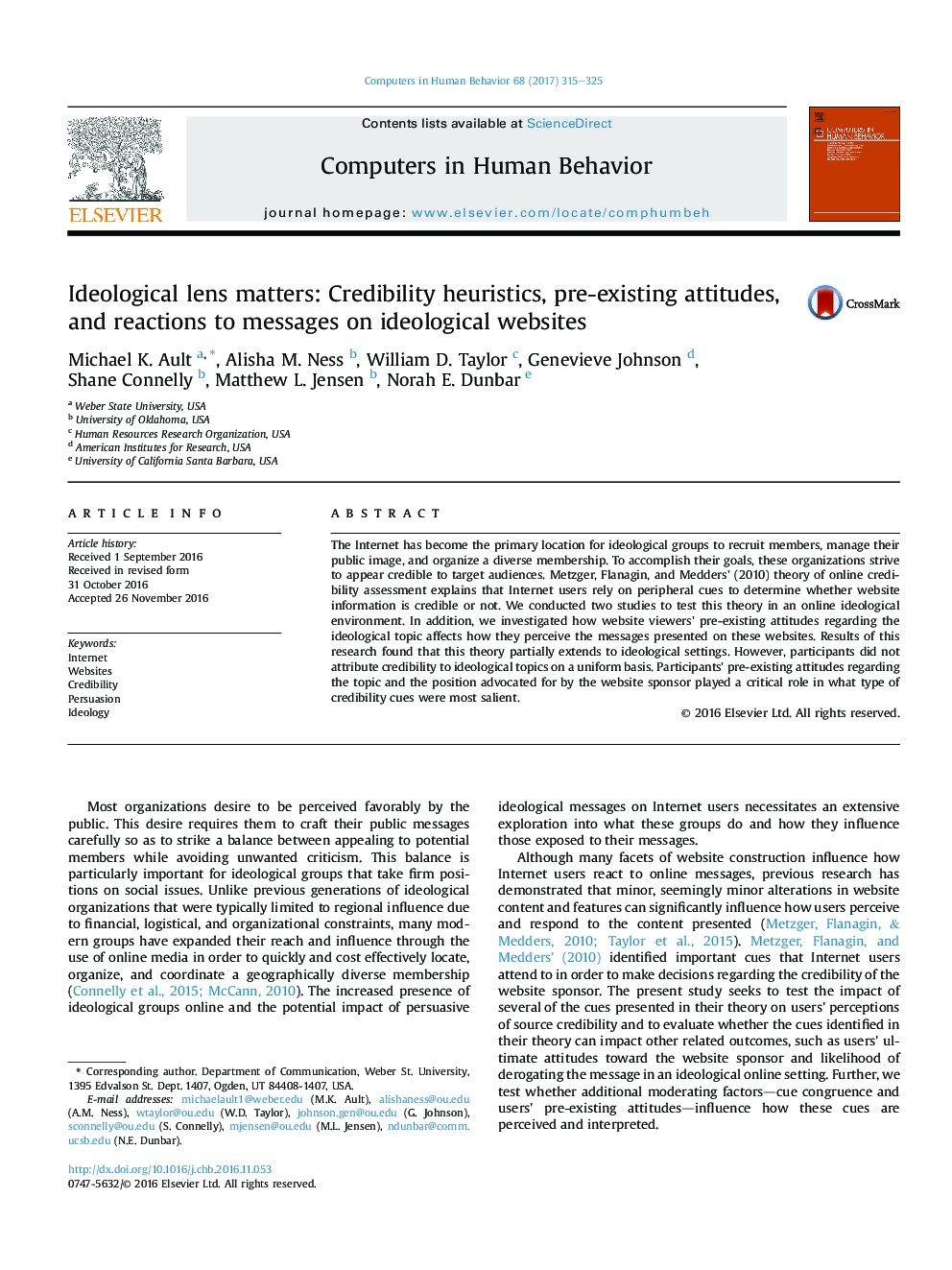| Article ID | Journal | Published Year | Pages | File Type |
|---|---|---|---|---|
| 4937687 | Computers in Human Behavior | 2017 | 11 Pages |
Abstract
The Internet has become the primary location for ideological groups to recruit members, manage their public image, and organize a diverse membership. To accomplish their goals, these organizations strive to appear credible to target audiences. Metzger, Flanagin, and Medders' (2010) theory of online credibility assessment explains that Internet users rely on peripheral cues to determine whether website information is credible or not. We conducted two studies to test this theory in an online ideological environment. In addition, we investigated how website viewers' pre-existing attitudes regarding the ideological topic affects how they perceive the messages presented on these websites. Results of this research found that this theory partially extends to ideological settings. However, participants did not attribute credibility to ideological topics on a uniform basis. Participants' pre-existing attitudes regarding the topic and the position advocated for by the website sponsor played a critical role in what type of credibility cues were most salient.
Related Topics
Physical Sciences and Engineering
Computer Science
Computer Science Applications
Authors
Michael K. Ault, Alisha M. Ness, William D. Taylor, Genevieve Johnson, Shane Connelly, Matthew L. Jensen, Norah E. Dunbar,
